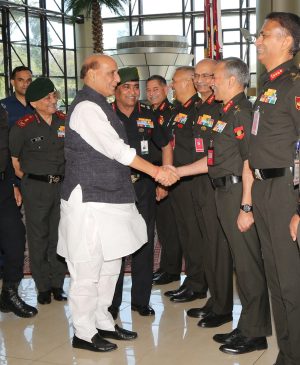Last week, an explosive report in The Guardian suggested that India had in recent years been engaging with jihadist networks to take down dissidents and convicted terrorists in Pakistan.
The killings, The Guardian said, quoting Pakistani investigators, had been orchestrated by “Indian intelligence sleeper cells mostly operating out of the United Arab Emirates.” These cells had reportedly been established a few years ago by the Indian intelligence agency, Research and Analysis Wing (RAW), which allegedly spent millions of rupees toward recruiting and paying off criminals or impoverished locals to carry out the murders. According to the report, documents claimed that payments had mostly been done via Dubai.
The Guardian report comes on the back of separate tensions between India, Canada, and the United States over the targeting of Sikh separatist leaders in North America. Its allegations were promptly denied by India’s Ministry of External Affairs. But shortly after the report was published, India’s Defense Minister Rajnath Singh said that India would “enter Pakistan to kill [terrorists].” That statement appeared to suggest that at least some senior leaders in New Delhi favor a policy of transnational killings overseen by Indian intelligence agents.
To be sure, most of the cases highlighted by The Guardian involved convicted terrorists with proven criminal records — not human rights activists or political dissidents of the kind typically targeted by China or Russia. Yet, if the report is true, it would still hold several important implications for India’s relations with the world.
The first consequence is India’s changing attitude toward global norms and international law.
For decades, India had traditionally eschewed going beyond its borders to take down terrorists or perceived enemies of the state because of its reservations over violating global norms. Even at the height of instability in Punjab and Kashmir in the 1980s and 1990s, New Delhi avoided targeting separatist leaders in Pakistan, the West, or elsewhere, except through diplomatic or official channels. That was because, as a middle power, India saw universal compliance with international law as a key strategic interest; a lawless world would only have complicated India’s own rise by compelling New Delhi to excessively expend precious resources on military might or hard power.
In recent years, as Prime Minister Narendra Modi has sought to present India as an emerging global power, New Delhi has begun to shed this conviction. Modi’s government has bought into a “might is right” approach and put a premium on developing India’s hard power — regardless of its internal economic challenges.
One Indian officer quoted by The Guardian insinuated that India was taking its inspiration from countries like Israel, Russia, and Saudi Arabia — all of whom have established their national power by carrying out extrajudicial killings on foreign soil.
“What the Saudis did [to journalist Jamal Khashoggi] was very effective,” the officer said. “You not only get rid of your enemy but send a chilling message, a warning to the people working against you… Our country cannot be strong without exerting power over our enemies.”
To many analysts in New Delhi, this isn’t necessarily a characteristic of authoritarianism; they are quick to point out that the United States has long carried out drone strikes across Afghanistan, Pakistan, and the Middle East in the same spirit.
India, therefore, increasingly evaluates its own power through its ability to flout global norms and get away with it. In that regard, the incident involving Gurpatwant Singh Pannun — the Sikh separatist leader in New York whom the U.S. has accused Indian agents of plotting to kill — is a key test case. New Delhi has reportedly asserted that the individual indicted by the U.S. Department of Justice is a “rogue” agent. But if Modi is able to convince Indian voters that his government has indeed been bold enough to go after a Sikh separatist in the United States without suffering any consequences, it would win him immense popularity as a leader who has established Indian power on the world stage.
India’s alleged tapping of jihadist networks could also be profoundly significant, especially in its relations with Pakistan and Afghanistan. The Guardian alleges that Indian agents had infiltrated networks of the Islamic State and the Taliban, where they “recruited and groomed Pakistani Islamist radicals to carry out hit jobs on Indian dissidents.”
It’s unclear how true that assertion is, which factions India had infiltrated if any, or whether New Delhi had managed to cultivate a relationship with them beyond these narrow operations. Yet, given the Taliban’s ongoing troubles with the Islamic State, and Pakistan’s fallout with the Taliban, India may be tempted to increase its influence in the region by exploiting those internecine tensions and cultivating longer-term strategic assets within the Islamist political landscape.
New Delhi would be keen to publicly rubbish all of these claims. Yet, political incentives in India now present Modi with a case to pursue an increasingly aggressive foreign policy.

































